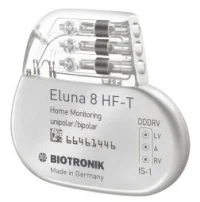According to a new study published in CMAJ (Canadian Medical Association Journal), among younger adults experiencing heart attacks and angina, findings show men receive faster care compared with women of the same age. It Other gender-related factors affecting access to care for both men and women were also uncovered.
With the aim of understanding the gender mortality gap for younger men and women suffering acute coronary syndrome, a team of researchers recruited over 1000 patients aged between 18 and 55 years from 24 centres in Canada, one in the US and one in Switzerland. 32 percent of them were women with a median age of 50, whereas the remaining 68 percent were men with a median age of 49 years.
On their first day of hospital admission, patients were asked to complete a survey covering gender-related issues such as "traditional" masculine and feminine traits of personality, education level, responsibility for housework, and health status before the cardiac event.
Results listed women as originating from lower income brackets, with a higher probability of having high blood pressure, diabetes, and a family history of heart disease with substantially higher levels of anxiety and depression compared to men.
Findings showed men receiving faster access to electrocardiograms (ECGs) and fibrinolysis than women, with door-to-ECG and door-to-needle times of 15 and 21 minutes and 28 and 36 minutes, respectively.
Dr. Louise Pilote, clinician-researcher, Division of Clinical Epidemiology at the Research Institute of McGill University Health Centre (RI-MUHC), Montréal, and professor of medicine at McGill University, wrote with her co-authors that anxiety was associated with failure to meet the 10-minute benchmark for ECG in just the women. Of the patients with anxiety who present to the emergency department complaining of noncardiac chest pain, the majority are women, and the prevalence of acute coronary syndrome is lower among young women than among young men. Pilote stated that these findings suggested an initial dismissal of a cardiac event among young women with anxiety by triage personnel, resulting in a longer time span from door-to-ECG.
Among those presenting at the emergency department with atypical symptoms or multiple risk factors, longer treatment delays were also reported.
A further interesting find was the identification of gender-related determinants of access to care, such as those who reported higher levels of feminine personality traits, as well as those who reported being the person at home mainly responsible for housework, were less likely to undergo invasive procedures.
In concluding, the authors suggested the need for more specific management for patients presenting to the emergency department with no chest pain, several risk factors or a feminine gender identity and role.
Source: Science Daily
Image credit: Google Images
18 March 2014
Latest Articles
Research, Heart, Cardiac, gender, heart attack, gender-specific, emergency care
According to a new study published in CMAJ (Canadian Medical Association Journal), among younger adults experiencing heart attacks and angina, findings sho...










